Discover The Endless Knot
The Endless Knot

The Endless Knot
Author: Mark Sundaram & Aven McMaster
Subscribed: 266Played: 4,324Subscribe
Share
© Creative Commons Attribution-ShareAlike 4.0 International License.
Description
Aven & Mark discuss etymology, history, literature, language, and cocktails, and the sometimes surprising connections between them all.
133 Episodes
Reverse
Grace Tierney is back with another great book about the word origins, this time “Words Christmas Gave Us"! She regales us with festive stories and we talk about some of the fun traditions and treats of the winter holidays.It’s been a long, unintended break since our last episode, but we’re happy to be back at it, in time to wish everyone very happy holidays!Wordfoolery websiteTranscript of this episodeThis episode on YouTubeOur Patreon pageRedbubble storeThis podcast is licensed under a Creative Commons Attribution-ShareAlike 4.0 International LicenseThe Endless Knot RSS
We spoke with Dr. Anne Curzan about her new book, “Says Who? A Kinder, Funner Usage Guide for Everyone Who Cares about Words”. We talk about language change, inner grammandos, the benefits of learning the rules of texting from one’s students, and of course, surprising connections!Also, please check out the Defeat Depression fundraising event, and the Sudbury Walk/Run on May 25.Anne Curzan’s websiteTranscript of this episodeThis episode on YouTubeOur Patreon pageRedbubble storeThis podcast is licensed under a Creative Commons Attribution-ShareAlike 4.0 International LicenseThe Endless Knot RSS
Buried deep under volcanic ash lie hundreds of burnt scrolls containing texts from the first century. A new project is driving the work to try to read these chunks of carbon, to uncover new works and open new doors into the past. We spoke to one of the leaders of this project, Dr. Stephen Parsons, about the Vesuvius Challenge, the technical aspects of ‘virtual unrolling’, the possibilities of new classical texts, the development of new ways of doing scholarship, and more. Also, please check out the Defeat Depression fundraising event, and the Sudbury Walk/Run on May 25.The Vesuvius ChallengeKaitlyn Hill’s booksTranscript of this episodeThis episode on YouTubeOur Patreon pageRedbubble storeThis podcast is licensed under a Creative Commons Attribution-ShareAlike 4.0 International LicenseThe Endless Knot RSS
We talked to Dr. Karen Carr about the global history of swimming — in myth, folktale, and history. Who swam, who didn’t, and how do the stories different cultures told reflect these patterns? We also talked a bit about Dr. Carr’s next book, all about silver, women, and textiles.Dr. Carr’s academic websiteDr. Carr’s history website and blog, Quatr.usTranscript of this episodeThis episode on YouTubeOur Patreon pageRedbubble storeThis podcast is licensed under a Creative Commons Attribution-ShareAlike 4.0 International LicenseThe Endless Knot RSS
We discuss the language and history of the ecological sciences, all the way back to the ancient Greeks, and the development of the food chain and food web models of ecological systems. And apologies for the unscheduled hiatus! Golden Chain CocktailFood Web videoCuckold video and podcast Frank N. Egerton. “A History of the Ecological Sciences: Early Greek Origins”, Bulletin of the Ecological Society of America 82.1 (2001): 93-97 ———, “A History of the Ecological Sciences, Part 2: Aristotle and Theophrastos”, BESA 82.2 (2001): 149-152 ———, “A History of the Ecological Sciences, Part 3: Hellenistic Natural History”, BESA 82.3 (2001): 201-205 ———, “A History of the Ecological Sciences, Part 4: Roman Natural History”, BESA 82.4 (2001): 243-246 ———, “A History of the Ecological Sciences, Part 5: Byzantine Natural History”, BESA 83.1 (2002): 89-94 ———, “A History of the Ecological Sciences, Part 6: Arabic Language Science—Origins and Zoological Writings”, BESA 83.2 (2002): 142-146 ———, “A History of the Ecological Sciences, Part 7: Arabic Language Science—Botany, Geography, and Decline”, BESA 83.4 (2002): 261-266 ———, “A History of the Ecological Sciences, Part 8: Frederick II of Hohenstaufen: Amateur Avian Ecologist and Behaviorist”, BESA 84.1 (2003): 40-44 ———, “A History of the Ecological Sciences, Part 9: Albertus Magnus: a Scholastic Naturalist”, BESA 84.2 (2003): 87-91Transcript of this episodeThis episode on YouTubeOur Patreon pageRedbubble storeThis podcast is licensed under a Creative Commons Attribution-ShareAlike 4.0 International LicenseThe Endless Knot RSS
We talk to Melanie Racette-Campbell about her new book, “The Crisis of Masculinity in the Age of Augustus”, and discuss why Roman elite men were particularly vulnerable to a societal transformation that changed their role in the state. What did it mean to be a good man in ancient Rome, and how and why did that change?Melanie’s book is available hereTranscript of this episodeThis episode on YouTubeOur Patreon pageRedbubble storeThis podcast is licensed under a Creative Commons Attribution-ShareAlike 4.0 International LicenseThe Endless Knot RSS
The word “chauvinism” is an unlikely eponym, but it turns out that the story behind it has all sorts of interesting connections. And our discussion of those connections also leads us into the long history of misogyny in the western world, from Eve and Pandora to the Virgin Mary, courtly love, and Victorian womanhood. Cocktail: Pandora’s Jar, from Nectar of the Gods“By Jingo” songHesiod’s Works and DaysHesiod’s TheogonySemonides 7Transcript of this episodeThis episode on YouTubeOur Patreon pageRedbubble storeThis podcast is licensed under a Creative Commons Attribution-ShareAlike 4.0 International LicenseThe Endless Knot RSS
We look at the history of English’s conceptualization of time, and update Mark’s research on spatiotemporal metaphor. Also, words for arrows, the surprising origin of ‘toxic’, and a bit of Latin poetry!Blue Arrow cocktailBow and Arrow cocktailTranscript of this episodeThis episode on YouTubeOur Patreon pageRedbubble storeThis podcast is licensed under a Creative Commons Attribution-ShareAlike 4.0 International LicenseThe Endless Knot RSS
We spoke to Dr. Valerie Fridland about her new book, “Like, Literally, Dude!” and talked about the fascinating role that many ‘errors’ in English speech actually play in communication. We discuss the never-ending changes that English has gone through, the surprisingly sophisticated rules behind our use of ‘um’ and ‘uh’, and much more.Dr. Valerie Fridland’s websiteLike, Literally, Dude!Transcript of this episodeThis episode on YouTubeOur Patreon pageRedbubble storeThis podcast is licensed under a Creative Commons Attribution-ShareAlike 4.0 International LicenseThe Endless Knot RSS
It’s Part 2 of our mega-episode on spelling! This time, we get into some of the notorious mismatches between English spelling and modern English pronunciation. Explaining them takes us all the way back to Phoenician — several times — but maybe, just maybe, some bits of this odd language will make more sense to you when we’re done!The XYZ CocktailOur video on “Spelling”Christopher Upward & George Davidson, The History of English Spelling (2001)David Sacks, Letter Perfect (2003)Kevin Stroud, The History of the Alphabet (audiobook)NativLang “Thoth’s Pill - an Animated History of Writing”Transcript of this episodeThis episode on YouTubeOur Patreon pageRedbubble storeThis podcast is licensed under a Creative Commons Attribution-ShareAlike 4.0 International LicenseThe Endless Knot RSS
We’re wading into the messy world of English spelling in this episode — the first of two, since we couldn’t fit all of the ‘quirks’ of the language into one episode. The history of orthography in English is all tangled up with the history of the alphabet, so in this part we trace some of the twists and turns that resulted in our modern script. The ABC CocktailOur video on “Spelling”Christopher Upward & George Davidson, The History of English Spelling (2001)David Sacks, Letter Perfect (2003)Kevin Stroud, The History of the Alphabet (audiobook)NativLang “Thoth’s Pill - an Animated History of Writing”Transcript of this episodeThis episode on YouTubeOur Patreon pageRedbubble storeThis podcast is licensed under a Creative Commons Attribution-ShareAlike 4.0 International LicenseThe Endless Knot RSS
In this bonus episode, we answer questions from viewers and listeners during a livestream on our YouTube channel, as part of #LingFest23. Apologies for the sound quality, which isn’t great.Also, sorry that we didn’t manage a regular episode in February, but we’ll definitely have one in March.LingComm23LingFest@AllEndlessKnot@toot.communityTranscript of this episodeThis episode on YouTubeOur Patreon pageRedbubble storeThis podcast is licensed under a Creative Commons Attribution-ShareAlike 4.0 International LicenseThe Endless Knot RSS
Just a reminder that we’ll be doing a Q&A livestream on our YouTube channel as part of LingFest in connection to the LingComm23 Conference on Sunday, February 12, 2023 at 1:00pm Eastern. Please leave us your questions on this website, email us, or post on social media, or just show up on the day at the livestream.The livestream will be here, just click on Sunday afternoon to join in!
In this episode we talk to the authors of two new books on Ovid’s Metamorphoses, the Latin epic poem he wrote in 8 CE. Stephanie McCarter has published a new translation of the poem, and Gareth Williams has written a short interpretive introductory work on the epic to go with the Columbia Core Curriculum. We talked with both of them about the way Ovid fits into contemporary society, what considerations there are when teaching this epic, and the joys and difficulties of engaging with Ovid’s poetic brilliance.Content note for sexual violence and brief description of trauma.LingComm23LingFest@AllEndlessKnot@toot.communityStephanie McCarter’s websiteOvid’s MetamorphosesGareth Williams faculty pageOn Ovid’s Metamorphoses“Landscape Near Rome during Storm” by Simon DenisTranscript of this episodeThis episode on YouTubeOur Patreon pageRedbubble storeThis podcast is licensed under a Creative Commons Attribution-ShareAlike 4.0 International LicenseThe Endless Knot RSS
As we get ready to mark the new year, it seems a good time to talk about a classic cocktail made with sparkling wine: the Bellini. Our conversation takes us to Italy, in the 20th century, the 15th century, and the 1st century BCE, to Renaissance art and the Roman practice of patronage, and more. Happy New Year!“Rewriting the history of art patronage”, by Jaynie Anderson. Renaissance Studies. Vol. 10, No. 2, Women Patrons of Renaissance Art, 1300–1600 (JUNE 1996), pp. 129-138. “Isabella d'Este and Giovanni Bellini's 'Presepio'“, by J. M. Fletcher. The Burlington Magazine. Vol. 113, No. 825, Venetian Painting (Dec., 1971), pp. 703-713.Transcript of this episodeThis episode on YouTubeOur Patreon pageRedbubble storeThis podcast is licensed under a Creative Commons Attribution-ShareAlike 4.0 International LicenseThe Endless Knot RSS
We welcome back Paul Anthony Jones, of Haggard Hawks fame, to ell us about his new book “Why Is This a Question?”. We talk about how his experience of social media has changed since we last interviewed him in 2016, what it was like researching a book covering such wide-ranging topics, the state of the publishing industry, and more.Haggard HawksOur previous interview with Paul (episode 21)Citogenesis (the Wikipedia citation problem) coined in xkcd comicRidley, R. T. “To Be Taken with a Pinch of Salt: The Destruction of Carthage.” Classical Philology, vol. 81, no. 2, 1986, pp. 140–46.Transcript of this episodeThis episode on YouTubeOur Patreon pageRedbubble storeThis podcast is licensed under a Creative Commons Attribution-ShareAlike 4.0 International LicenseThe Endless Knot RSS
We talk about the origins of music, its connection (both etymological and scientific) with the mind, how language is used to describe and teach music, the Muses, and the Museum of Alexandria. Also featuring brief cameos from music YouTuber 12Tone.Monk’s Muse Cocktail12Tone’s video “Why Do Notes Have Names?” Ghost Notes Podcast“Future” videoMurdoch Mysteries episode “The Dominion of New South Mimico”Language: The Cultural Tool by Daniel EverettErskine, Andrew. “Culture and Power in Ptolemaic Egypt: The Museum and Library of Alexandria.” Greece & Rome, vol. 42, no. 1, 1995, pp. 38–48. JSTOR.Hardie, Alex. “Etymologising the Muse.” Materiali e Discussioni per l’analisi Dei Testi Classici, no. 62, 2009, pp. 9–57. JSTOR.Transcript of this episodeThis episode on YouTubeOur Patreon pageRedbubble storeThis podcast is licensed under a Creative Commons Attribution-ShareAlike 4.0 International LicenseThe Endless Knot RSS
We spoke with Tim Brooks of the Endangered Alphabets project about the cultural importance of scripts, the pressures on marginalized and isolated scripts, his beautiful wood carvings, and the various initiatives he and his group have been working on to support script revitalization and creation around the world.Website: Endangered AlphabetsInhabit MediaTwitter: @endangeredalphaInstagram: @endangeredalphasTranscript of this episodeThis episode on YouTubeOur Patreon pageRedbubble storeThis podcast is licensed under a Creative Commons Attribution-ShareAlike 4.0 International LicenseThe Endless Knot RSS
Commemorating the 6th anniversary of the death of Mark’s father, and the 75th anniversary of Indian independence, this episode connects widows and partition, and while also touching on the legacy of Alexander the Great, the origins of badminton and tennis, and obscure typesetting vocabulary.Merry Widow Cocktail Black Widow CocktailOlson, Kelly. “Fringed Clothing in Roman Iconography and Written Sources.” Textiles in Ancient Mediterranean Iconography, edited by SUSANNA HARRIS et al., Oxbow Books, 2022, pp. 149–60.Olson, Kelly. "Insignia Lugentium: Female Mourning Garments in Roman Antiquity". American Journal of Ancient History (New Series 3-4, 2004-2005 [2007]): 3-4, 2004, pp. 89-130. Hagerman, Christopher A. “In the Footsteps of the 'Macedonian Conqueror": Alexander the Great and British India.” International Journal of the Classical Tradition, vol. 16, no. 3/4, 2009, pp. 344–92.Transcript of this episodeThis episode on YouTubeOur Patreon pageRedbubble storeThis podcast is licensed under a Creative Commons Attribution-ShareAlike 4.0 International LicenseThe Endless Knot RSS
We have a very fun conversation with Dr. Natalie Swain about her work on classical reception and the polar regions — the Arctic and Antarctic — science fiction, and comics. And Natalie and Mark find lots of overlaps and connections between their interests!“Between the Sheets: Reading the Coverlet as Comics in Catullus 64.” Image [&] Narrative 22.2 (2021)Scott McCloud’s Understanding Comics@mazonianfeline#ClassicsTwitterComicsTranscript of this episodeThis episode on YouTubeOur Patreon pageRedbubble storeThis podcast is licensed under a Creative Commons Attribution-ShareAlike 4.0 International LicenseThe Endless Knot RSS


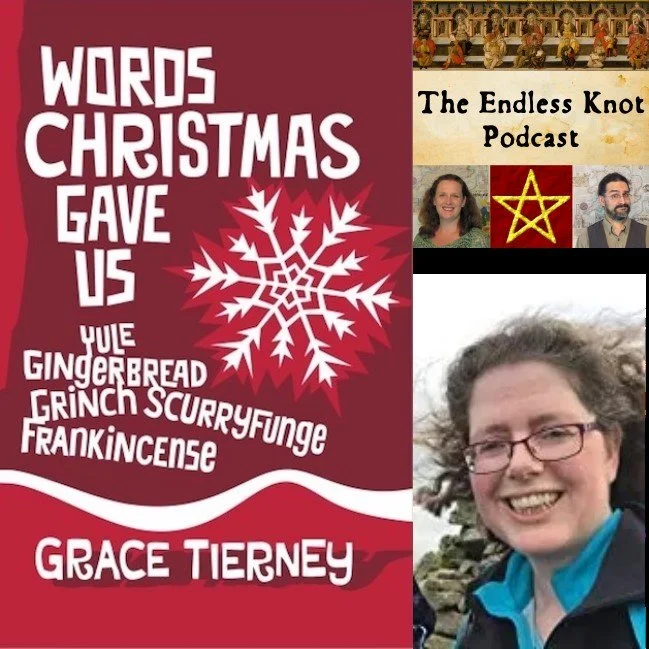





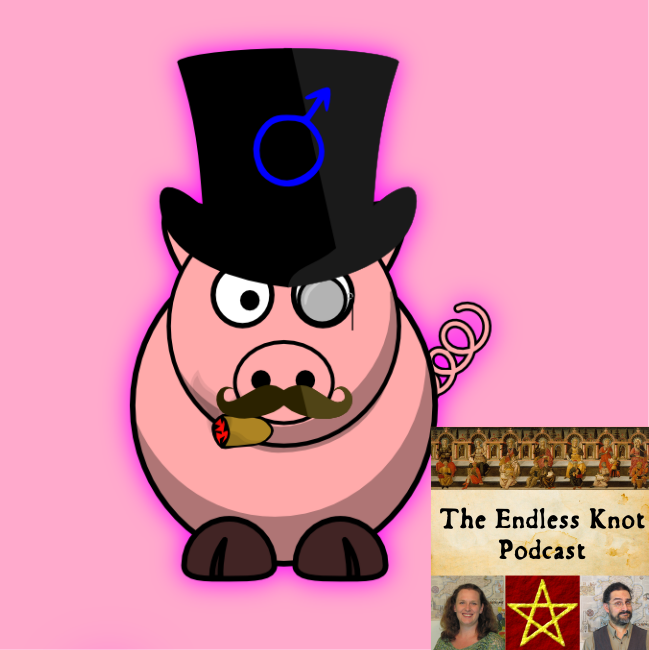

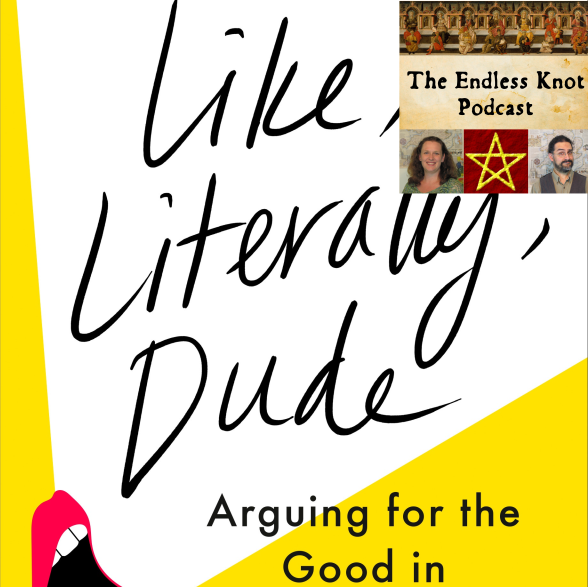
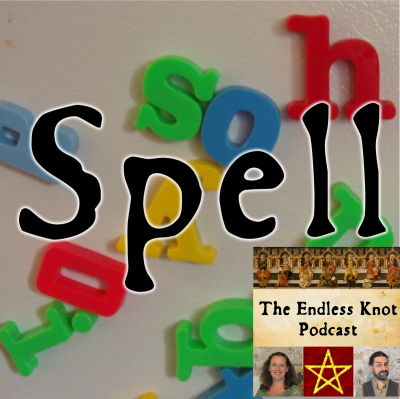
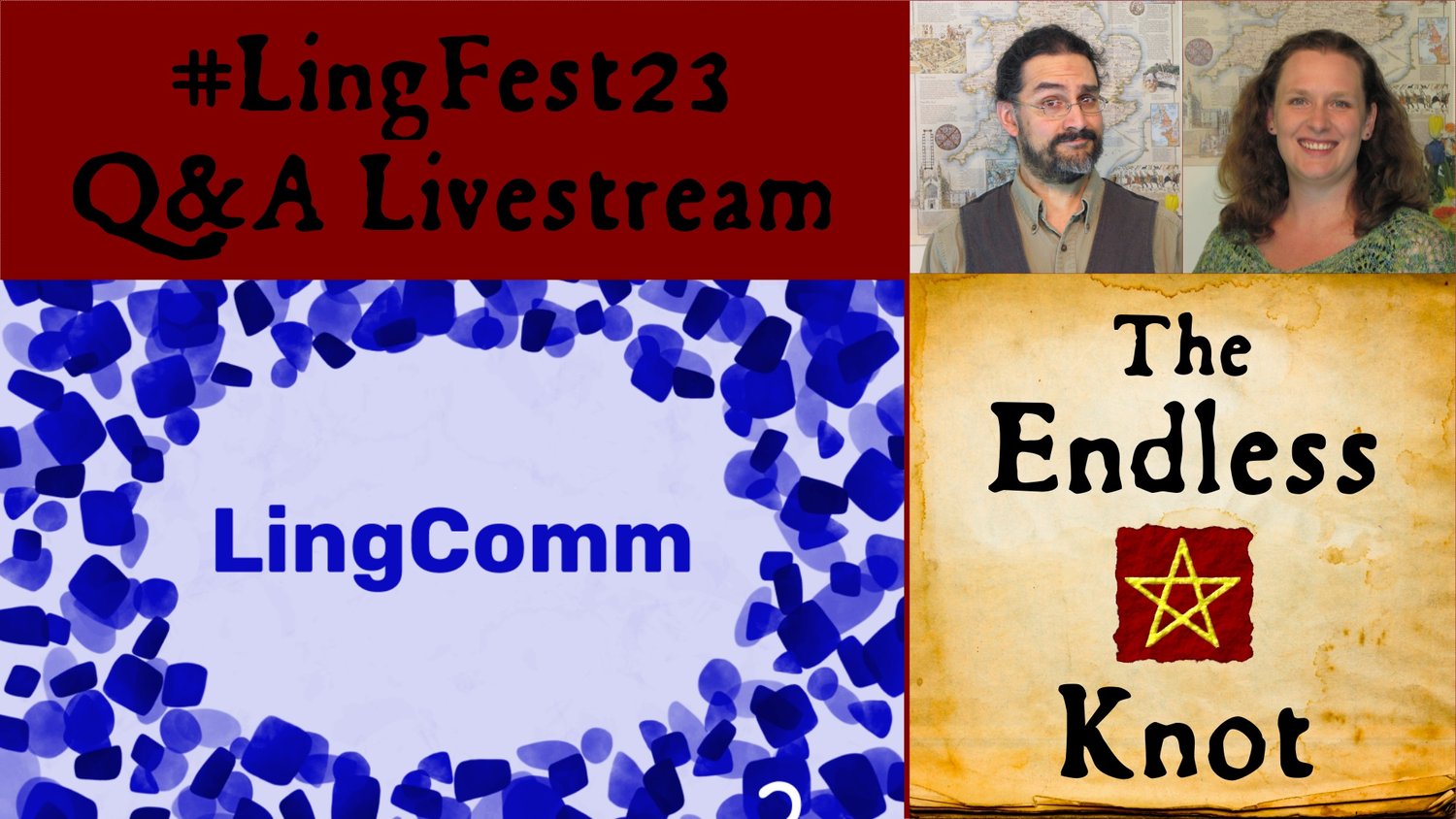




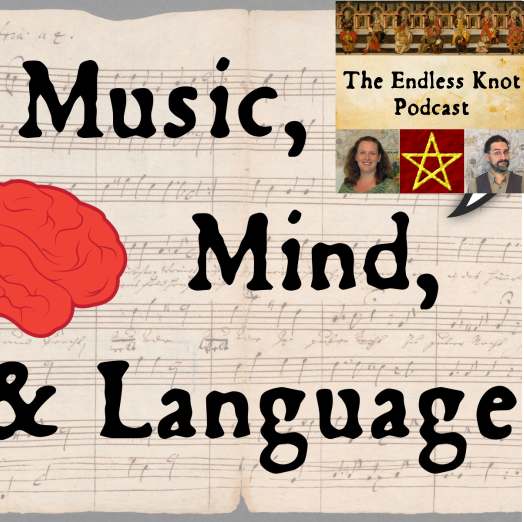

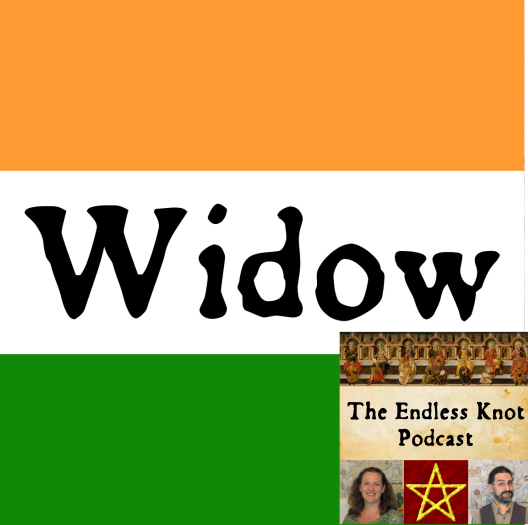
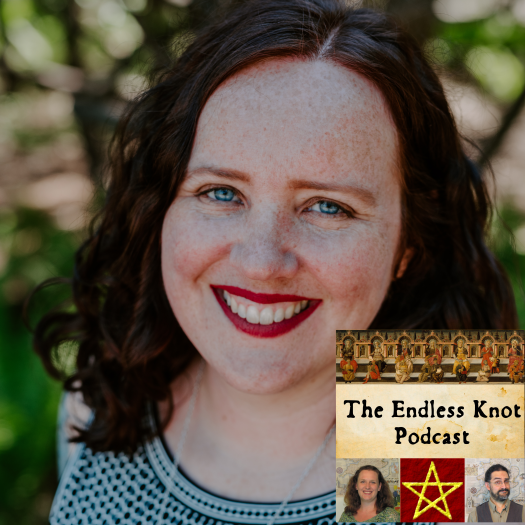



Welcome back!
The premise that race as a real, genetically based difference between groups of people with visibly different physical characteristics is actually valid. However, the variations are not simple or straightforward. First of all genes are components of DNA that determine our physical characteristics, like height and eye color. These characteristics are heritable. A gene comes in different forms called alleles which manifest as variations of a trait, like hair color or ability to digest lactose. Some traits involve several to many genes so allele combinations can be very varied. At the single allele level, race does not exist since all alleles occur in all groups of the three major racial groups. But groups of alleles are characteristic of racial differences. Since race at the physical level is rather obvious, saying it does not exist is futile and disquieting. That all races are part of the same human species is absolutely true. And all races and species for that matter deserve equal res